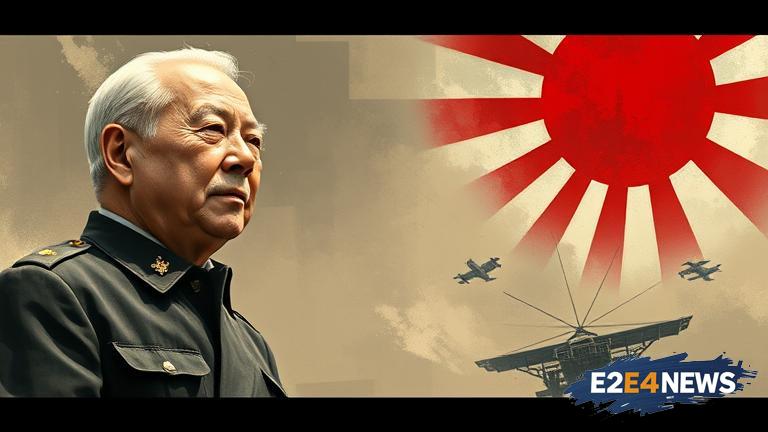General Douglas MacArthur’s arrival in Japan on August 28, 1945, marked the beginning of a new era for the country. As the Supreme Commander for the Allied Powers, MacArthur played a crucial role in shaping Japan’s post-war reconstruction. His legacy, 80 years on, remains a topic of debate among historians and scholars. MacArthur’s impact on Japan’s politics was significant, as he oversaw the drafting of the country’s new constitution, which enshrined democratic principles and human rights. The constitution, which came into effect in 1947, has been amended several times, but its core principles remain intact. MacArthur also introduced land reform, which aimed to redistribute land from large landholders to small farmers, and promoted labor rights, leading to the establishment of trade unions. His economic policies, including the introduction of the yen as the national currency, helped to stabilize the economy and pave the way for Japan’s post-war economic miracle. MacArthur’s cultural impact was also significant, as he encouraged the development of Japanese arts and culture, including literature, music, and film. He also promoted education, establishing a new education system that emphasized democratic values and critical thinking. However, MacArthur’s legacy is not without controversy. Some critics argue that his policies were overly restrictive, limiting Japan’s sovereignty and imposing Western values on the country. Others point to the purge of Japanese politicians and officials who had been involved in the war effort, which they see as an attempt to impose victor’s justice. Despite these criticisms, MacArthur’s legacy continues to shape Japan’s relationship with the United States, with the two countries remaining close allies to this day. The security treaty between Japan and the US, which was signed in 1951, remains in effect, and the two countries cooperate closely on defense and security issues. MacArthur’s impact on Japan’s economy is also still evident, with the country remaining one of the world’s largest economies. Japan’s manufacturing sector, which was encouraged by MacArthur’s policies, remains a major driver of the economy. The country’s technology sector, which has produced companies like Sony and Toshiba, also owes a debt to MacArthur’s emphasis on education and innovation. In recent years, there has been a growing recognition of MacArthur’s legacy in Japan, with many scholars and historians reevaluating his impact on the country. Some have argued that MacArthur’s policies were more nuanced and complex than previously thought, and that his legacy should be seen as a product of its time. Others have pointed to the ongoing relevance of MacArthur’s ideas, including his emphasis on democracy, human rights, and the rule of law. As Japan continues to navigate its relationships with the US and other countries, MacArthur’s legacy remains an important factor. The country’s ongoing debates about its constitution, security policy, and economic direction are all influenced by MacArthur’s ideas and policies. In conclusion, MacArthur’s legacy, 80 years on, remains a powerful force in Japan, shaping the country’s politics, economy, and culture. While his policies were not without controversy, his impact on Japan’s development and growth is undeniable. As the country looks to the future, it is likely that MacArthur’s legacy will continue to be felt, influencing Japan’s relationships with the world and its own sense of identity and purpose.
